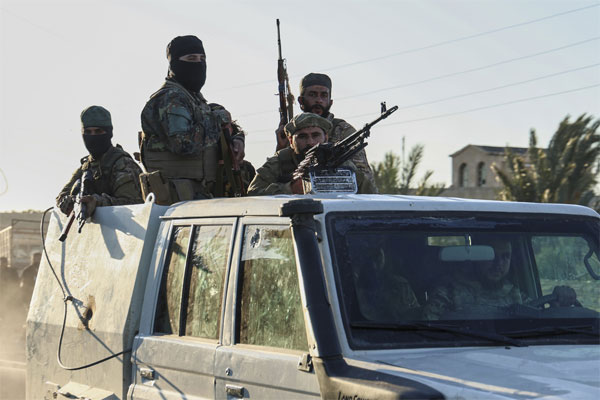Daijiworld Media Network - Damascus
Damascus, Jul 17: A new ceasefire has been brokered between the Syrian interim authorities and elements of the Druze community in the southern province of Sweida, aiming to halt a surge of deadly violence and reestablish state control. The deal was confirmed on Wednesday by Syria’s Interior Ministry through state-run SANA news agency.
According to the government, the ceasefire agreement includes an immediate end to military operations, the deployment of internal security forces at key checkpoints, and the restoration of full functionality for state institutions under Syrian law.
Spiritual Druze leader Sheikh Youssef Jarbouh supported the deal, outlining several conditions: army units would withdraw to their barracks, a joint state-Druze monitoring committee would be formed, and unauthorized weapons would be regulated in coordination with both the defence and interior ministries.

However, the accord has exposed deep rifts within the Druze leadership. In a strongly worded statement, prominent cleric Sheikh Hikmat al-Hijri condemned the agreement, dismissing the Syrian interim government as illegitimate and calling for continued armed resistance.
“There are no real negotiations and no mandate for this regime,” al-Hijri declared, accusing government forces of committing severe human rights violations including murder, looting, and the destruction of hospitals and places of worship. He warned that any individual or faction who signs separate deals would be held accountable for betraying the cause.
The ceasefire comes after four days of intense and bloody confrontations that have reportedly claimed at least 248 lives, including civilians, soldiers, and Bedouin fighters, according to the UK-based Syrian Observatory for Human Rights.
While an earlier version of the ceasefire was reached on Tuesday, clashes reignited soon afterward, driving thousands of residents to flee the conflict-ridden areas. The spark for the unrest was the reported assault and robbery of a Druze youth at a makeshift checkpoint operated by armed Bedouin fighters. In response, local Druze militias launched retaliatory operations that spiraled into widespread violence involving Bedouin tribes, local armed groups, and interim government forces.
In a parallel development, Israel has conducted a series of airstrikes targeting military infrastructure in Sweida and Damascus. Israeli officials claim the operations are meant to protect the Druze community, although the strikes have added further volatility to the already explosive situation.
As the dust settles temporarily, the durability of the ceasefire remains uncertain. With key Druze leaders refusing to recognize the agreement and ground-level tensions still high, the risk of renewed violence looms large over Sweida and the broader region.